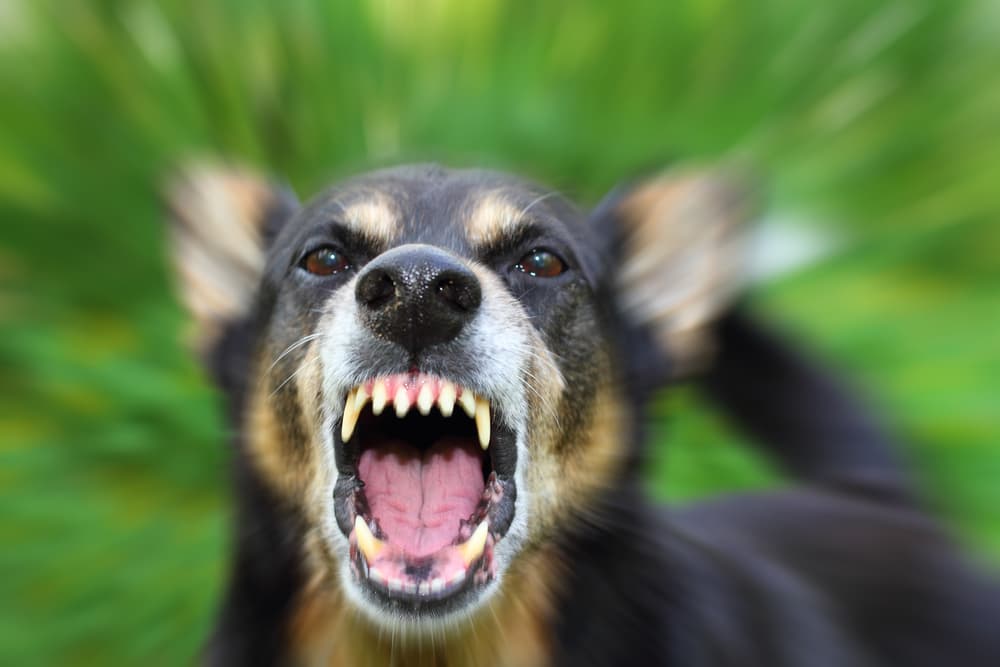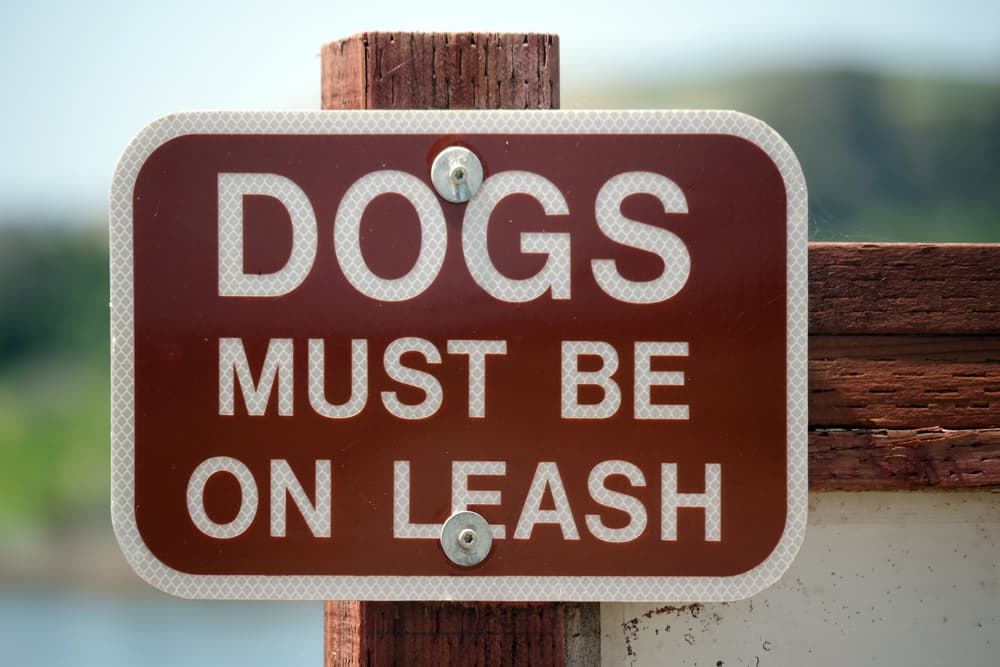Dogs are often called "man's best friend," and for good reason. They provide companionship, love, and loyalty to their owners. However, not all dogs are friendly and well-behaved. Some aggressive dogs can pose a serious threat to public safety.
That's where dangerous dog laws come in. These complicated laws require a dog bite lawyer to interpret and apply to your situation.
What Are Dangerous Dog Laws?
Dangerous dog laws safeguard the public from dogs with a history of aggressive behavior or that have attacked people or other animals.
These laws vary from state to state and city to city, but they all aim to hold dog owners accountable for a dangerous pet's actions. If you suffer a bite, seek help from a dog bite attorney in your state immediately.
Common Provisions of Dangerous Dog Laws
While dangerous dog laws vary from state to state, some common provisions in many of these laws include:
Definition of a Dangerous Dog

Most dangerous dog laws clearly define what constitutes a dangerous dog. This category may cover dogs that have repeatedly attacked people or other animals without provocation, dogs that have caused serious injury or death, or dogs trained for fighting.
Registration and Identification
Many dangerous dog laws require owners of dangerous dogs to register their pets with local authorities and to provide identification, such as a microchip or tattoo.
Confinement and Restraint
Dangerous dog laws often require owners to keep their dogs confined in a secure enclosure or on a leash and muzzle when in public.
Liability Insurance
Some dangerous dog laws require owners to carry liability insurance to cover any damages or injuries caused by their pets.
Penalties for Violations
Dangerous dog laws typically include penalties for owners who fail to comply with the law, such as fines or even jail time in severe cases.
Damages in Dangerous Dog Cases
When a dangerous dog causes injury or harm to a person, the victim may be entitled to seek damages from the dog's owner. Damages are a legal term for the monetary compensation that a victim can receive for the losses and injuries they have suffered as a result of the dog attack.
Types of Damages in Dangerous Dog Cases
Several types of damages may be available in a dangerous dog case, depending on the specific circumstances of the attack and the extent of the victim's injuries.
These damages can include:
- Medical Expenses: One of the most common damages in dangerous dog cases is compensation for medical expenses. This can include the cost of emergency room visits, hospitalization, surgery, medication, and ongoing medical treatment related to the injuries sustained in the attack.
- Lost Income: If victims cannot work due to injuries, they may be entitled to compensation for lost income. This can include both the income lost immediately after the attack and any future lost earnings if the victim cannot return to their previous job or career due to their injuries.
- Pain and Suffering: In addition to economic damages like medical expenses and lost income, victims of dangerous dog attacks can also seek compensation for their pain and suffering. This can include physical pain, emotional distress, and mental anguish caused by the attack and its aftermath.
- Scarring and Disfigurement: Dog attacks frequently lead to significant scarring and disfigurement, especially when bites occur on the face or other exposed body areas. Victims may be entitled to compensation for the emotional distress and loss of self-esteem caused by these injuries.
- Loss of Consortium: In some instances, the victim's spouse or family members may also have the right to claim damages for loss of consortium. This can include compensation for the loss of companionship, affection, and support that the victim cannot provide due to their injuries.
- Punitive Damages: In rare cases involving a dog owner's particularly reckless or malicious behavior, the victim can seek punitive damages. These damages aim to penalize the owner and discourage future dangerous behavior rather than compensate the victim for their losses.
Factors That Can Affect Damages in Dangerous Dog Cases
The amount of damages that a victim can receive in a dangerous dog case can vary widely depending on:
- Severity of Injuries: Generally speaking, the more severe the victim's injuries, the higher the potential damages. This is because severe injuries often require more extensive medical treatment, result in longer periods of lost income, and cause more significant pain and suffering.
- Age of the Victim: The victim's age can also impact the damages awarded. For example, if the victim is a child who suffers scarring or disfigurement, they may be entitled to more significant damages for the long-term emotional impact of their injuries.
- Negligence of the Dog Owner: If the dog owner was negligent in handling the dangerous dog by allowing it to roam freely or failing to prevent attacks, this could also increase the potential damages.
- Insurance Coverage: The amount available insurance coverage can also impact the damages in a dangerous dog case. If the dog owner has significant liability insurance, this can increase the potential settlement or jury award.
Factors That Can Make a Dog Dangerous
Let's take a look at some of the factors that can make a dog dangerous:
Breed
Certain breeds are more commonly associated with aggression and attacks regarding dangerous dog behavior. Pit bulls, Rottweilers, German shepherds, and Doberman pinschers are among the breeds frequently mentioned in discussions about dangerous dogs. These breeds have gained a reputation, often due to media coverage of severe attacks and their abuse in dogfighting rings.
However, a dog's breed alone does not determine its behavior. Many factors, including training, socialization, and individual temperament, play significant roles in shaping a dog's personality and behavior. It's unfair and inaccurate to stereotype an entire breed as dangerous based on the actions of a few individual dogs.
In fact, many dogs of the breeds commonly associated with aggression are gentle, loving, and well-behaved companions. Responsible owners of these breeds often go to great lengths to ensure their dogs receive proper training, socialization, and care to prevent aggressive behavior.
It's important to approach each dog individually and avoid making judgments based solely on breed. Any dog can display aggressive behavior regardless of breed if not properly trained and socialized.
Training and Socialization
Proper training and socialization can prevent dangerous dog behavior. From a young age, dogs need to interact with various people, animals, and situations in a positive and controlled way.
This helps them develop confidence and social skills and cope with new experiences without fear or aggression.
Dogs that lack appropriate socialization may become fearful or anxious in unfamiliar situations, leading to defensive or aggressive behavior. They may also struggle to communicate effectively with other dogs and people, increasing the risk of misunderstandings and conflicts.
Owners who fail to invest time and effort into properly training and socializing their dogs are likelier to have pets that exhibit dangerous or undesirable behavior. This can include aggression towards people or other animals, destructive habits, and a lack of command responsiveness.
Abuse or Neglect
Sadly, dogs that have experienced abuse or neglect are at a higher risk of developing dangerous behavior. When people subject dogs to physical or emotional mistreatment, it profoundly harms their mental and emotional well-being, often causing fear, anxiety, and aggression.
Dogs that have experienced physical abuse may become fearful and defensive, lashing out at people or other animals to protect themselves from further harm. They may also develop a general mistrust of humans, making it difficult for them to form positive relationships and respond to training.
Neglect, including lack of socialization, can also contribute to dangerous behavior. Dogs isolated, confined, or deprived of basic needs like food, water, and medical care may become anxious, frustrated, and more prone to aggression.
These dogs may struggle to communicate and interact appropriately with others without proper socialization and exposure to different people and situations.
Dog owners may intentionally train or encourage aggressive behavior. These cruel and illegal practices create dangerous dogs that pose a serious threat to public safety.
Dogs with a history of abuse or neglect may require specialized care, training, and patience to overcome their past experiences and learn to trust and behave appropriately.
Owners who adopt or rescue dogs with unknown or troubling backgrounds need to invest time and resources in helping these animals heal and adjust to a new, loving environment.
Medical Issues
Sometimes, a dog's aggressive or dangerous behavior may result from an underlying medical issue. Pain, discomfort, or hormonal imbalances can cause dogs to act out in uncharacteristic or dangerous ways, even if they have no history of aggression.
For example, a dog with a painful injury or undiagnosed medical condition may become irritable, snappy, or defensive when touched or approached. They may lash out at people or other animals to protect themselves from further discomfort or pain.
Hormonal imbalances, such as those caused by thyroid disorders, can also contribute to aggressive behavior in dogs. These imbalances can affect a dog's mood, energy levels, and overall temperament, leading to sudden changes in behavior or an increased tendency towards aggression.
Brain tumors, neurological disorders, and cognitive decline in older dogs can also cause changes in behavior, including increased aggression or irritability.
These medical issues can affect a dog's perception, judgment, and ability to control their impulses, making them more likely to react inappropriately or dangerously in certain situations.
Dog owners must be attentive to any sudden or unexplained changes in their pet's behavior, as these may be signs of an underlying medical issue.
Regular check-ups with a veterinarian can help identify and address potential health problems before they escalate into dangerous behavior.
What to Do After a Dangerous Dog Bites You
Take quick action to ensure your safety and well-being and protect your legal rights after a dangerous dog bites you:
Seek Medical Attention

The first and most important step after being bitten by a dangerous dog is to seek medical attention. Even if the bite seems minor, it's important to have it evaluated by a medical professional. If not properly treated, dog bites can lead to serious infections, scarring, and other complications.
If the bite is severe or you are experiencing significant bleeding, call 911 or go to the nearest emergency room immediately. You can visit an urgent care center or your primary care physician for less severe bites.
Follow your doctor's instructions for caring for your wound and taking any prescribed medications. Keep all medical records and receipts related to your treatment for any legal claims you pursue.
Report the Bite
After seeking medical attention, report the bite to the appropriate authorities.
This may include:
- Animal control: Contact your local animal control agency to report the bite and provide information about the dog and its owner, if known. Animal control can investigate the incident and take steps to ensure that the dog does not pose a further threat to public safety.
- Police: If the bite was severe or you believe the dog owner's behavior was reckless or negligent, you may also want to file a report with the police.
- Your local health department: Some health departments mandate reporting dog bites for tracking purposes and to verify that the dog's vaccinations are current.
Gather Evidence
If you decide to pursue a legal claim against the dog owner, gather as much evidence as possible to support your case.
This may include:
- Photos of your injuries
- Medical records and bills related to your treatment
- Contact information for any witnesses to the attack
- Photos or videos of the dog and the scene of the attack, if possible
- Information about the dog's history of aggression or previous attacks, if known
Contact a Dog Bite Attorney
If a dangerous dog severely injured you, contact an experienced dog bite lawyer who handles animal attack cases. An attorney can aid your understanding of your legal rights and options and guide you through seeking compensation for your injuries.
Your attorney can gather evidence, negotiate with insurance companies, and take your case to court if necessary. Your dog bite attorney can also meet any legal deadlines or requirements for pursuing a claim.
Speak to a Dog Bite Lawyer Today
Dangerous dog laws can protect public safety and hold dog owners accountable for the actions of their pets. However, dog owners must take responsibility for their pets and prevent aggressive behavior.
If a dangerous dog injured you or someone you know, seek legal help from a qualified personal injury attorney who handles animal attack cases. A personal injury lawyer can explain your legal rights and options and can fight for the compensation you deserve.

